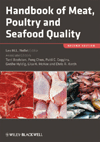Don’t try telling Darrin Froemming, that he is too young to co-own and operate a poultry business.
“I feel old,” says the 23-year-old. “In the last four years, I’ve aged 10 years.”
Admittedly, the last four years have been very eventful for Froemming and his older brother, Trent, 26. Four years ago, they were college students who were looking to pursue an ag career, possibly in the beef industry. Since then, they have started their own poultry business, expanded it several times, developed several niche markets and grown the business exponentially. Headquartered in Ashby, Minn., TFC Poultry has topped the $2 million mark in annual sales, and its capacity for processing chickens has grown from 500 birds per day at the start to more than 9,000 per day currently. Darrin Froemming oversees the office portion of the company, while Trent handles the production side.
“We’ve found a lot of opportunities,” says Froemming. “We really haven’t found anyone who can do what we do on the poultry side. There are a lot of small or mid-sized red meat processors, but on the poultry side it seems few and far between.”
TFC’s business is fairly evenly divided between the retail, foodservice and further-processing markets. Organic sales account for about 40 percent of its business, and the ethnic market – head-on, feet-on; Confucian-style – is also a substantial part of the business. Part of the company’s success stems from the fact that it can handle semi-load quantities as well as smaller orders.
“People can’t go to any normal-sized turkey or broiler company and say, ‘Hey, I want to do 50,000 birds,’ but we can do that,” he says.
Business growth in poultry processing
Froemming says that the only experience the brothers had with chickens was from 4H projects. TFC’s current location used to be a custom processing plant, and they would raise chickens during the summer, bring them to the plant to be slaughtered and sell the meat to neighbors and relatives. By the time they had started college, the plant had closed after a succession of owners.
“One of the local producers called – why he got me name and number I have no idea – and said, ‘We want to keep this thing going. Are you interested in starting a co-op?’” Froemming explains.
At the time, he said no, but as he and Trent talked about it, they began to see the possibilities. They surveyed the local producers and saw they there would be an interest in such a plant. They eventually agreed to lease the building and start the business – as a part-time project. At the onset, there were five employees, who gave the Froemmings an introduction to chicken processing.
“We started it in May of 2008,” Froemming says. “The first year we ran everything as is – the equipment and the building. After running the first year, we started to see there was more potential here, and we devoted ourselves full time to this.”
The building that houses TFC Poultry is about 75 years old. After buying the building, the brothers closed the business at the end of February 2009 and spent the next three months gutting and renovating it. Froemming says that the exterior walls are the only part of the building that weren’t touched.
When it reopened in June 2009, TFC Poultry was a completely different company. The building had new electrical, water and sewer systems, as well as new processing equipment, and the company itself had become organically certified and federally inspected.
The building is 10,000 square feet in size, and after a recent expansion that added an automatic crop remover and an addition for waste handling, Froemming notes that every available inch of space is now being used. The company is located on the main street of Ashby, with businesses on either side and residences across the street. The fact that the company is essentially landlocked is one reason why the brothers originally had thoughts of building a new facility instead of remodeling.
“Thankfully, we never went ahead with that, because we would have screwed up so terribly,” Froemming admits. “We thought we knew everything, but we didn’t know anything.”
With four years of experience in the industry, the Froemmings are considerably more knowledgeable than they were at the onset. TFC Poultry, though, is a very young company on the whole; aside from two employees who have six years of experience, most of the company’s 55 employees had no prior processing experience when they joined the company.
“Unlike a lot of other companies who have generations of experience, we’re pretty young,” Froemming says. “That can at times be a disadvantage, and at times an advantage.”
One of the advantages is that the company is not set in its ways and won’t back down from a challenge. That tenacity began when Darrin and Trent started going to banks and investors at the ages of 19 and 22 and were able to get the capitol to start the business. Even now, the company looks at every request from a customer as an opportunity, regardless of the difficulty.
“I couldn’t even count the number of times, whether it’s industry people or equipment people, say ‘You guys aren’t able to do that,” and lo and behold, we’re able to figure out a way,” Froemming says proudly. “Trent and I have both worked hard and put in lots of hours to get the startup going and be growing. We’re not afraid to work, and we’re not afraid to help out in the plant. We’ve taken risks and put in everything we had to get it going.”
Furthermore, there is no guarantee that a more experienced workforce would function any better. Froemming tells of another small processor that brought in a veteran employee with large plant experience, and the arrangement did not work.
“He didn’t have the flow,” Froemming says. “Small plants operate differently [than larger facilities.]”
Chicken processors like the "Ugly Chicken"
At the onset, TFC Poultry did primarily custom work. Now, that service is limited to a couple of days each month. The company gets its chickens delivered from throughout the Midwest, and as far as Arkansas. The chickens (mostly spent hens with some broilers) are slaughtered and processed before being distributed nationwide, as well as export. Some of the product is distributed under the company’s own “Ashby Gold” and “Grandpa Bill’s Pride” brands, mostly in the retail segment.
Much of TFC Poultry’s sales comes from contract work, which has its risk. In order to diversity the company, Froemming says that the company started a new line of high-end, breed specific chickens.
“It seems like there are so many processors out there already who are doing an ABF [antibiotic-free] bird or an all-natural bird,” he says. “We have those label attributes, but do we have a much better taste? So where we’ve put our efforts was to develop a heritage breed.”
There are several breed-specific programs in the red meat category, including Angus beef and Duroc pork, but that trend has not yet carried over to the chicken category. TFC worked with one of the developers of the Compart Family Farms Duroc pork program (another Minnesota processor) as well as area meat labs and ended up with an Ugly Chicken – literally.
“It’s definitely a different breed,” Froemming says. The Ugly Chicken has no feathers on its neck and minimal feathers on its breast and inside of the drums. While it won’t win any beauty contests, the meat performed very well with the taste test panels.
“A lot of people describe it as the way chicken used to taste,” Froemming notes. “In the industry, taste has almost been bred out of the chicken. You can season it or marinate it to make it taste good, but in its natural form, there’s really not much there.”
The company has done tests for Minnesota chefs, cooking up The Ugly Chicken with just salt and pepper. The taste has won over customers, and the label attributes certainly haven’t hurt. The birds are cage-free and antibiotic-free and have a basic corn and soybean diet.
The target market for The Ugly Chicken is center-of-the-plate, high-end restaurants. TFC has added on a few distributors in Minnesota, and the program is growing.
“Additionally, we are starting a new brand to compliment The Ugly Chicken,” Froemming adds. “It has the same label attributes, but will be a conventional breed. It’s intended market is for the more price-sensitive foodservice establishment that is desiring a high-quality, All-Natural chicken.”
“As a small processor, you’ve got to have a niche,” Froemming says.
TFC has grown steadily since its start, and 2012 will be no exception. However, Froemming says that this year’s focus was on improving its operations more than growing the business.
“In order to accomplish our goal of improving our operations, we have recently brought on a quality assurance coordinator and a plant manager. This has allowed me and Trent to focus on managing instead of doing,” he adds.
The company plans to keep growing its slaughter operations while entering into further processing at some point in the future.
“Right now, we don’t have hard set goals,” Froemming adds. “It seems like every day we’re still feeling out what the industry has and what kind of potential is out there.”













